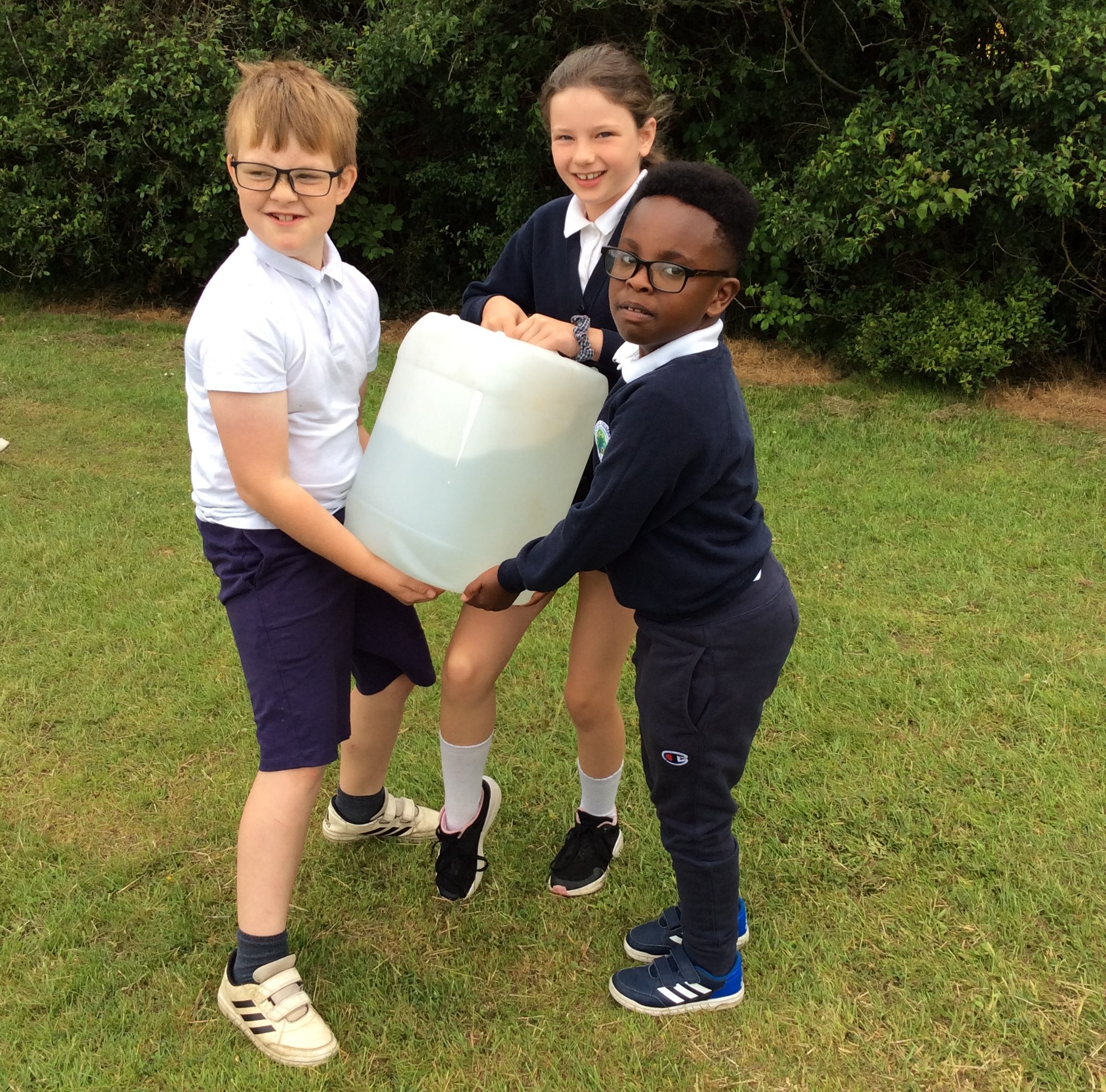
Every 10 seconds...
World Vision, the world’s largest non-governmental provider of clean water, is providing one new person every 10 seconds, and three more schools every day, with clean water.


You can change the lives of girls who carry water just to survive.
Imagine having to walk a treacherous 6km every day just to get water to survive. That’s the situation for thousands of people, especially women and children, in the developing world.
Children in a Buckinghamshire school did more than imagine: they actually walked 6k in school - and raised money to help.
Pupils at High Ash CE School, Great Brickhill, near Milton Keynes, walked 30 laps of the school field, raising £5,480 through the sponsored event, along with a cake sale, in June.
Headteacher Sara Boyce says: “Our school vision is to challenge inequality in the world as the Good Samaritan did. In taking part in this event, we have been raising awareness about the rights for all children to have access to clean water and education. It’s been a real eye-opener to the children to cover 6km, to understand how far youngsters their age in poorer countries walk each day just to get water. They also experienced how heavy that water is to carry.”
The High Ash children took part in the walk in the safety of their school grounds. In the developing world, the journey is often dangerous and there is no adult supervision. Youngsters as young as four are forced to get up early and carry buckets of water so heavy they rub the hair off their heads. If they get home in time for school, they are often too exhausted to concentrate in class.
So, what did the High Ash children think of the challenge?
Angelina said: "It was really tiring but at the end I felt really joyful, it was like a marathon but I knew it would help other children around the world get clean water so that is what kept me going."
Phoebe said: "I ran the 6K knowing that I was giving poorer children access to water. Every step was helping that little bit more, it was a small step for me but could have had a big impact on their life."
Finley said: "I felt good about myself because every step that I took I knew I would be helping someone that doesn't have the luxury we have of access to clean water nearby."
Why 6K? That’s the average distance people (usually girls) in the developing world, walk every single day to collect water – and often it’s dirty.
Fred Ouma, Development Communications Coordinator for World Vision Uganda, reports:
When children have access to safe water, there’s more time to play. Years ago, little Tracy, nine, would have been among the millions of children without access to safe water at home. Instead of play, or even time to go to school, Tracy would have been among millions of children collecting water for the family.
For women and girls in parts of Uganda, as elsewhere in Africa, the struggle to gather water for their families is a personal, everyday battle. They are responsible for getting water needed to survive – for drinking, cooking, and cleaning. They may stand in line, walk long distances or pay exorbitant amounts of money, all to secure water. In their efforts to get water for their families, they often face an impossible choice – certain death without water or illness from dirty water.
Before World Vision came to her village, Tracy’s family drew water from the shallow wells they shared with animals located three kilometres away from their house. Women and girls spent hours each day walking to collect water. The water they found might not have been safe for drinking but they collected it anyway.
“It was a miserable life,” says Tracy’s mother, Brenda. “The water was unsafe and it took nearly the whole morning. We consumed it because we didn’t have a choice.”
“Every parent wants their children to have a balanced diet, a safe home, safe water, and playtime,” Brenda says. “Thanks, World Vision, for changing our realities that millions of Ugandans continue to face today. I am so happy.”
Now with safe water just a stone’s throw away from their house, Brenda doesn’t have to pass the burden of water collection on to her children, who can go to school each day.
Her community water point was part of a larger project to help people access clean water. To date, about 40,000 residents in the three districts of Kole, Oyam and Agago in Northern Uganda now have access to improved water, sanitation and hygiene services and practices.
For children, especially girls like Tracy, access to safe water at home means health, hope and an opportunity for them to enjoy life to its fullness. The third child out of six, Tracy does not have to worry about becoming ill from drinking water or walking long distances to fetch water. Instead, she has plenty of time to play with her siblings and friends.
“My favourite game is cycling,” says Tracy. “I also like dodge ball if the bicycle is not there.”

